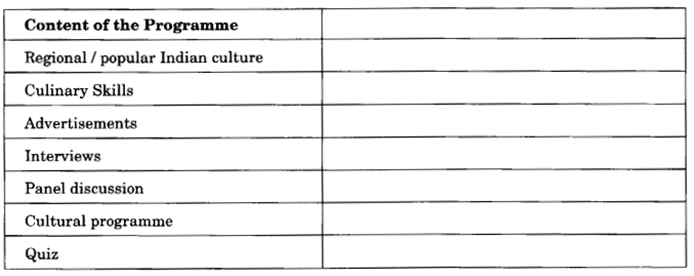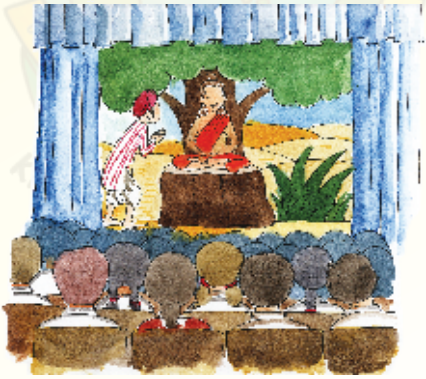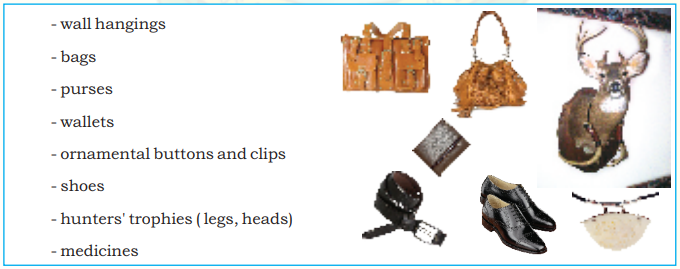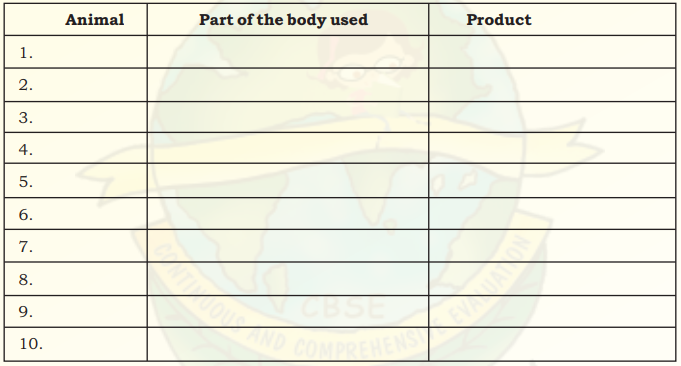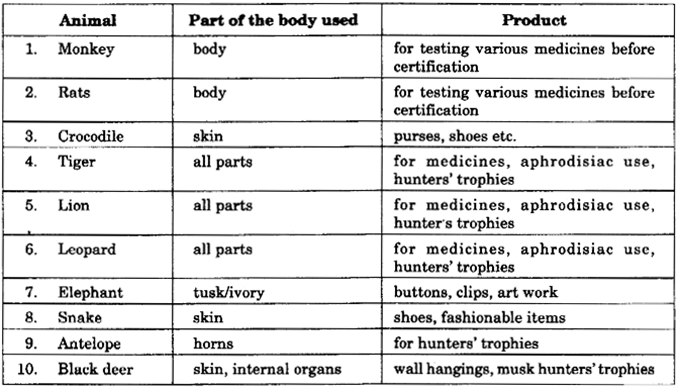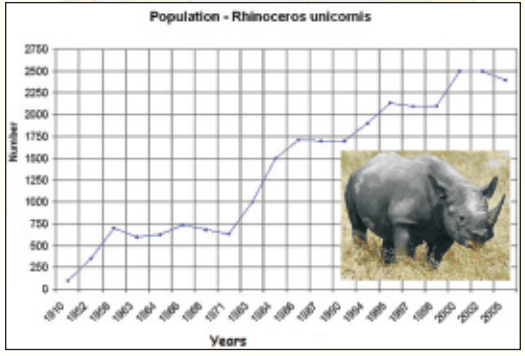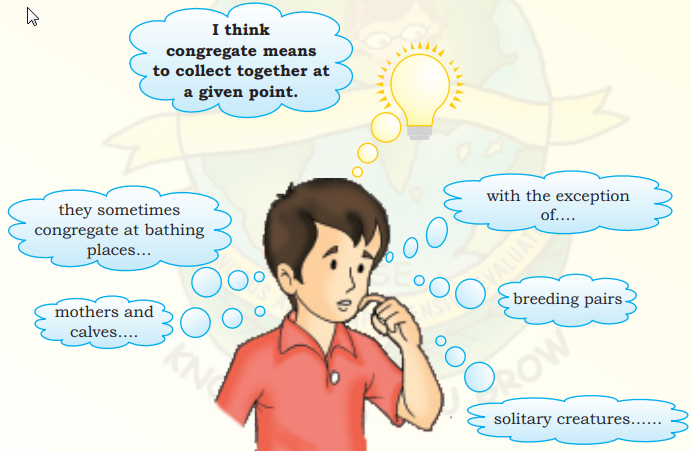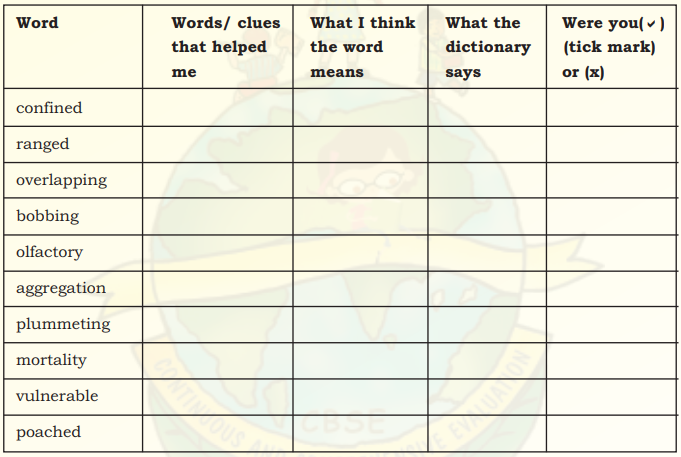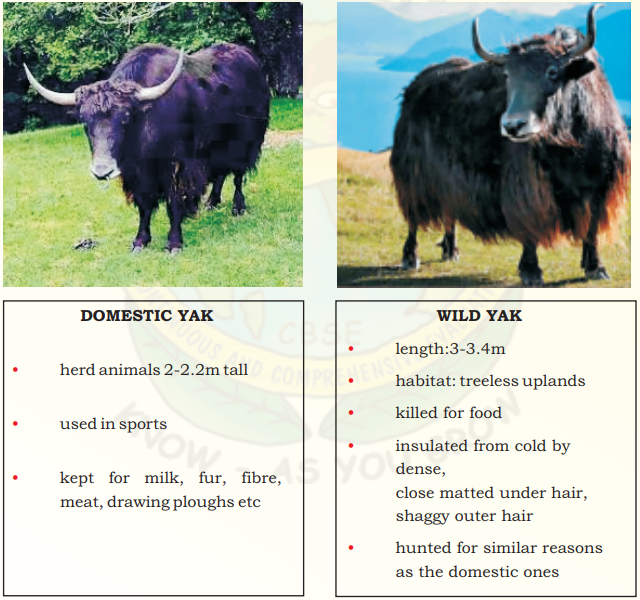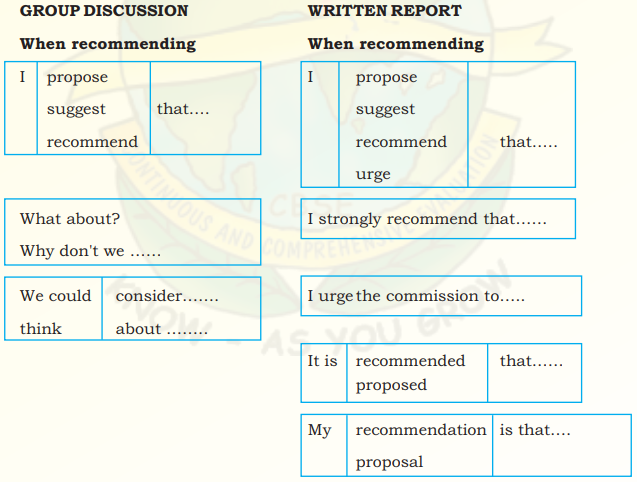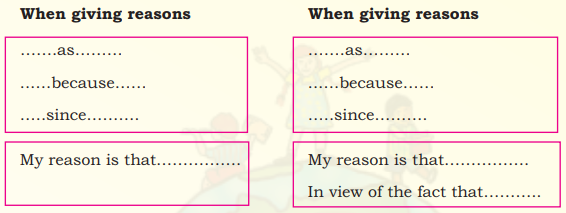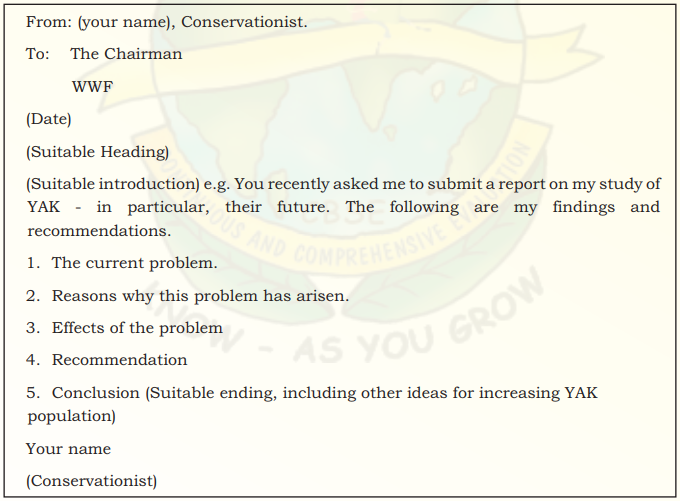NCERT Solutions for Class 8 Hindi Vasant Chapter 8 यह सबसे कठिन समय नहीं are part of NCERT Solutions for Class 8 Hindi. Here we have given NCERT Solutions for Class 8 Hindi Vasant Chapter 8 यह सबसे कठिन समय नहीं.
| Board | CBSE |
| Textbook | NCERT |
| Class | Class 8 |
| Subject | Hindi Vasant |
| Chapter | Chapter 8 |
| Chapter Name | यह सबसे कठिन समय नहीं |
| Number of Questions Solved | 6 |
| Category | NCERT Solutions |
NCERT Solutions for Class 8 Hindi Vasant Chapter 8 यह सबसे कठिन समय नहीं
प्रश्न-अभ्यास
(पाठ्यपुस्तक से)
कविता से
प्रश्न 1. “यह कठिन समय नहीं है?” यह बताने के लिए कविता में कौन-कौन से तर्क प्रस्तुत किए गए हैं? स्पष्ट कीजिए
उत्तर :
‘यह सबसे कठिन समय नहीं’ यह बताने के लिए कवयित्री ने कविता में निम्नलिखित तर्क प्रस्तुत किए हैं
(क) चिड़िया तिनका लेकर उड़ने की तैयारी में है
(ख) पेड़ से गिरने वाली पत्ती को थामने के लिए हाथ तैयार है
(ग) स्टेशन पर भीड़-भाड़ हैरेलगाड़ी अपने गंतव्य पर जाती है
(घ) कोई किसी का इंतजार करते हुए चिंतित हो रहा है और कह रहा हैकि जल्दी आ जाओ
(ङ) दादी-नानी अंतरिक्ष से आने वाली बसों की कहानी सुनाती हैं
प्रश्न 2. चिड़िया चोंच में तिनका दबाकर उड़ने की तैयारी में क्यों है? वह तिनकों का क्या करती होगी? लिखिए
उत्तर :
चिड़िया अपनी चोंच में तिनका दबाकर उड़ने की तैयारी में है क्योंकि वह इन तिनकों से अपना नीड़ बनाना चाहती हैइन तिनकों से वह अपने परिवार तथा आने वाले बच्चों के लिए घोंसला बनाती होगी, ताकि वह और उसका परिवार चैन से रह सके
प्रश्न 3. कविता में कई बार अभी भी’ का प्रयोग करके बातें रखी गई हैं, अभी भी का प्रयोग करते हुए तीन वाक्य बनाइए और देखिए उनमें लगातार, निरंतर, बिना रुके चलनेवाले किसी कार्य का भाव निकल रहा है या नहीं?
उत्तर :
‘अभी भी’ के प्रयोग से बनाए गए तीन वाक्य
(क) यहाँ पिछले सप्ताह से बर्फ पड़नी शुरू हुई और अभी भी जारी है
(ख) नशीली दवाएँ लेना छोड़कर तुम अभी भी सामान्य जीवन जी सकते हो
(ग) उचित समूह का रक्त देकर मरीज की जान अभी भी बचाई जा सकती है
हाँ, इन वाक्यों में लगातार, निरंतर, बिना रुके चलने वाले किसी कार्य को भाव निकल रहा है।
प्रश्न 4. “नहीं” और “अभी भी” को एक साथ प्रयोग करके तीन वाक्य लिखिए और देखिए ‘नहीं’ ‘अभी भी’ के पीछे कौन-कौन से भाव छिपे हो सकते है?
उत्तर :
‘नहीं’ और ‘अभी भी’ के साथ प्रयोग करने से बने वाक्य
(क) यहाँ कोई महाविद्यालय नहीं है, इसलिए लड़कियाँ अभी भी पढ़ने शहर जा रही हैं(निरंतर का भाव)
(ख) अतिथि अब तक नहीं आए है, लगता है उनके आने में अभी भी समय लगेगा(प्रतीक्षा का भाव)
(ग) जून बीतने पर भी वर्षा नहीं हुई तथा सरकारी सहायता अभी भी नहीं मिली(निराशा का भाव)
कविता से आगे
प्रश्न 1. घर के बड़े-बूढ़ों द्वारा बच्चों को सुनाई जानेवाली किसी ऐसी कथा की जानकारी प्राप्त कीजिए जिसके आखिरी हिस्से में कठिन परिस्थितियों से जीतने का संदेश हो।
उत्तर :
जीवन उतार-चढ़ाव का नाम हैजीवन में अनेक प्रकार की समस्याएँ आती जाती रहती हैं उनका सामना करने के लिए सभी को मानसिक रूप से तैयार रहना चाहिएइन समस्याओं के सामने व्यक्ति हिम्मत न हार बैठे, इसलिए घर के बड़े-बूढों द्वारा समय-समय पर ऐसी कहानियाँ सुनाई जाती हैंजिनकी मदद से कठिनाइयों पर विजय पा सकेंयहाँ ऐसी ही एक कहानी प्रस्तुत है
संस्कृत साहित्य के महान कवि कालिदास का नाम हम सभी जानते हैंवे संस्कृत साहित्य के बहुत बड़े कवि तथा नाटककार के रूप में प्रसिद्ध हैंउन्हें दूसरा शेक्सपीयर भी कहा जाता है
कालिदास का जन्म कहाँ हुआ, कब हुआ, उनका बचपन का क्या नाम था, इस बारे में कुछ ठीक-ठीक बता पाना मुश्किल हैइतना जरूर पता है कि ये बचपन में बहुत ही मूर्ख थे तथा गरीबी में जीवन बिता रहे थेवे जहाँ रहते थे, वहीं कहीं आस-पास में विद्योत्मा नामक युवती रहती थी जो बहुत ही विदुषी थीउसने शास्त्रों का अच्छा ज्ञान प्राप्त किया थावह अपना विवाह अपने से योग्य पुरुष से करना चाहती थीउसने घोषणा कर दी थी कि जो भी उसे शास्त्रार्थ में हरा देगा वह उसी के साथ विवाह करेगीउसकी घोषणा सुनकर बहुत से ज्ञानी ब्राह्मण कुमार आते रहे, पर वे विद्योत्मा को शास्त्रार्थ में हरा न पाते और पराजित हो लौट जाते पराजय से अपमानित ब्राह्मणों ने मिलकर एक योजना बनाई कि इसने बहुत से ब्राह्मणों का अपमान किया हैअब इसका विवाह किसी भी तरह किसी बज्रमूर्ख से करा देना चाहिएये ब्राह्मण युवक किसी महामूर्ख की तलाश में निकल पड़ेजंगल के रास्ते में उन्होंने पेड़ पर एक युवक को कुछ काटते सुनाब्राह्मणों ने पास जाकर देखा कि युवक तो उसी डाल को काट रहा है, जिस पर वह बैठा हैउन्होंने युवक को नीचे बुलाया और कहा कि यदि वह उनके कहे के अनुसार कार्य करे तो वे उसका विवाह अत्यंत सुंदर युवती से करा देंगेविवाह की बात सुनकर युवक उनकी बात मानने को तैयार हो गयाब्राहमणों ने उसे अपनी योजना समझा दी और पंडित वेशधारण कराकर उसे विद्योत्मा के पास ले गएशास्त्रार्थ शुरू होने से पहले ही ब्राह्मणों ने विद्योत्मा को बताया कि ये हमारे गुरु हैं जिन्होंने आजकल मौन व्रत धारण कर रखा हैइस समय वे केवल इशारों में शास्त्रार्थ करेंगेशास्त्रार्थ शुरू हुआविद्योत्मा ने एक उँगली मूर्ख युवक को दिखाई, जिसका जवाब उसने दो उँगलियाँ उठाकर दींजब विद्योत्मा ने पाँचों उँगलियाँ दिखाई तो मूर्ख युवक ने अपनी अंगुलियाँ और हथेली बंदकर दिखाई शास्त्रार्थ में विद्योत्मा पराजित हो गई और उसका विवाह उस मूर्ख युवक से हो गयाकुछ समय बाद जब विद्योत्मा को पता चला कि उसका पति मूर्ख है तो उसने अपने पति को घर से निकाल दिया।
पत्नी से अपमानित वह युवक काली मंदिर में रहने लगा और काली की पूजा अर्चना तथा खूब तपस्या की इससे उनका नाम कालिदास पड़ गयाउसने विद्या अध्ययन किया और विद्वान बनकर पत्नी के पास आयाउसने संस्कृत साहित्य में अनेक काव्य एवं नाट्यग्रंथों की रचना की जिनमें अभिज्ञान शाकुंतलम, मेघदूत, विक्रमोर्वशीयं आदि बहुत ही प्रसिद्ध हैंकहा जाता हैकि संस्कृत साहित्य में कालिदास के समान दूसरा नाटककार नहीं हुआ।
प्रश्न 2. आप जब भी घर से स्कूल जाते हैं कोई आपकी प्रतीक्षा कर रहा होता हैसूरज डूबने का समय भी आपको खेल के मैदान से घर लौट चलने की सूचना देता है कि घर में कोई आपकी प्रतीक्षा कर रहा है-प्रतीक्षा करनेवाले व्यक्ति के विषय में आप क्या सोचते हैं? अपने विचार लिखिए
उत्तर :
प्रतीक्षा करने वाला कोई अपना ही व्यक्ति होता हैघर से स्कूल जाने पर घर के सदस्य प्रतीक्षा करते मिलते हैंइनके बारे में मैं निम्नलिखित बातें सोचता हूँ
(क) वे लोग मुझे बहुत प्यार करते हैं तथा मुझसे विशेष अपनत्व तथा लगाव रखते हैं।
(ख) वे हमारे सुख-दुख तथा जरूरत का ध्यान रखते हैं
(ग) वे चाहते हैं कि मैं समय से पहले ही उनकी आँखों के सामने रहूँ
(घ) मेरी तनिक सी परेशानी देखकर वे बहुत ज्यादा परेशान हो जाते हैं।
(ङ) मेरे लौटने में देर होते ही वे चिंतित हो जाते हैं
अनुमान और कल्पना
अंतरिक्ष के पार की दुनिया से क्या सचमुच कोई बस आती है जिससे खतरों के बाद भी बचे हुए लोगों की खबर मिलती है? आपकी राय में यह झूठ है या सच? यदि झूठ है तो कविता में ऐसा क्यों लिखा गया? अनुमान लगाइए यदि सच लगता है तो किसी अंतरिक्ष संबंधी विज्ञान कथा के आधार पर कल्पना कीजिए कि वह बस कैसी होगी, वे बचे हुए लोग खतरों से क्यों घिर गए होंगे? इस संदर्भ को लेकर कोई कथा बना सकें तो बनाइएअंतरिक्ष में जाने वाली बस का संदर्भ लेकर छात्र कोई कथा स्वयं बनाएँ।
We hope the NCERT Solutions for Class 8 Hindi Vasant Chapter 8 यह सबसे कठिन समय नहीं help you. If you have any query regarding NCERT Solutions for Class 8 Hindi Vasant Chapter 8 यह सबसे कठिन समय नहीं, drop a comment below and we will get back to you at the earliest.








